As the UK faces the threat of Brexit, an ongoing housing crisis and the London mayoral election, Property Week and King & Wood Mallesons bring together industry experts to talk about the big property issues of the coming year.

Introduction
There are interesting times ahead. Much of being a lawyer is about understanding and offsetting risks and about helping clients move quicker than their competitors to secure opportunities. This has never been more the case than in 2016. What will be the real effects of Chinese stock market volatility? How will international threats to security and the continuing human consequences of conflict in the Middle East be addressed? Will we see a snap Brexit referendum, and what would be the market consequences of an “out” vote? Will the Government’s measures to encourage residential development and home ownership really move the dial, or will they create as many problems as they solve? What does the pace of new technology business models mean for distribution, for shopping, for working, for travel, and for living? What will be the implications of a new London mayor and, more widely, of SDLT and business rates changes?
It was, as always, fascinating to host Property Week’s annual forecast dinner and to grapple with the very practical question of how these issues will shape our year, the work we do, and the advice we give. For now, we advise you to fasten your seatbelts. Enjoy the ride.
Simon Ricketts, William Naunton, Steven Cowins (King & Wood Mallesons)
OUR PANEL OF EXPERTS
Mike Hussey Managing director, Almacantar
Melanie Leech Chief executive, British Property Federation
Bill Hughes Head of real assets, Legal & General Property
Andrew Pettit Partner, Revcap
David Sleath Chief executive officer, SEGRO
Anne Kavanagh Global head of asset management and transactions, AXA IM-Real Assets
Brian Bickell Chief executive, Shaftesbury
David Marks Managing partner, Brockton Capital
Philip Ross Founder and CEO, UnWork.com
Nigel George Senior executive director - investments, Derwent London
Jim McCaffrey Senior managing director and co-head of Europe, Eastdil Secured
Simon Ricketts Partner, King & Wood Mallesons
William Naunton Partner, King & Wood Mallesons
Steven Cowins Partner, King & Wood Mallesons
Chair: Liz Hamson Editor, Property Week
The global economy
Liz Hamson, Property Week: What a time we have picked to have this event. Could there have been more happening this week to talk about? To start, let’s look at some of the global challenges to the property market in the UK: oil prices; North Korea; and today we have had the news of another big fall on the Chinese stock market.
David Marks, Brockton Capital: We spend a lot of time talking to Chinese investors and they are fairly adamant that the volatility in China is making allocations for overseas real estate go up. The deregulation of the insurance industry over there is going to allow a huge amount of capital to flow out of China, regardless of the stock market. For every Chinese investor that backs out of a deal there are five who would do it.
David Sleath, SEGRO: There is an incredible focus in the media on the Chinese stock market, but the stock market is not China. The reality on the ground is that things aren’t that bad.
Brian Bickell, Shaftesbury: It does need to correct. It can only have been a bubble and we are going through a period of correction.
Mike Hussey, Almacantar: It is important to get things into perspective. China is a big new player on the world circuit and they are not completely tuned in yet to the way things are done. Chinese investors change their mind daily and their government intervenes with exchange rates every morning. It is going to be a bit up and down and we just have to look through it. It is incredibly exciting for a mature market like ours which is a safe place to invest.
Philip Ross, UnWork.com: Uncertainty is the killer. This “toxic cocktail” phrase that came up today is linked to all of these things. The price of oil dramatically dropping is linked to China’s contraction, so while the stock market may not have a huge impact removing the circuit breaker, today means that it could go into free fall, which doesn’t just affect China, it affects the other Asian economies - especially with the Chinese currency devaluation. The most worrying thing is the impact of that contraction on the global demand for raw materials. That is hitting some industries, and therefore investment, dramatically.
Nigel George, Derwent London: Compared to somewhere like Australia, which is giving them the raw material, I don’t think we need to worry about that. It is a confidence thing.
Anne Kavanagh, AXA IM-Real Assets: The predictions for China are that it will still be growing at 6.5%, so let’s keep it in context. China’s contribution to global growth is tremendous.
The Brexit threat
LH: Will anything challenge the UK’s status as a relative safe haven?
AK: Brexit is the key challenge. I think the referendum will happen this year.
DS: Cameron will hold it as soon as possible, probably in June. I don’t think he expects to extract any meaningful concessions.
Andrew Pettit, Revcap: Europe has played a blinder by saying: “put your questions on the table first and then we can give you an answer.” We all know the answer won’t be: “yes please.” It will be some fudged version.
DS: If we do end up with a situation where it is very close, it will damage investor confidence. A lot of the long-term institutional money may look through it, but as was the case with the Scottish independence referendum, a lot of people will be nervous. In the event of a “no” vote, even if you think we will be sailing into sunnier climes, eventually there will be a great deal of uncertainty for a time.
NG: There is a two-year period to work your way out of the EU.
DS: And that is before you have started working out your trade deals.
Bill Hughes, Legal & General Property: The international capital I have been talking to is surprisingly calm about this as an issue. They still think that, on balance, it won’t happen, and even if it did happen it is not an armageddon scenario, because our economy is always going to be a bit like the US market in terms of the free market and floating currency. I am not saying it has no consequences, but it is very easy to overstate the negatives.
Jim McCaffrey, Eastdil Secured: Ours is a city-by-city business, and in London you have the deepest and most liquid real estate market on the planet. We see investors piling in because it is one of the easiest and safest places to invest. Donald Trump is running for president. The guy is literally insane and he’s winning. That hasn’t affected global interest in investing.
William Naunton, King & Wood Mallesons: The problem is that if a Brexit allows the SNP to call another referendum, and the union breaks up as a result of that, there could be a period of instability. I also wonder what would happen to passport arrangements. If we leave, it will come down to having a proper trade negotiation, otherwise businesses that have set up their European platform in the UK are going to struggle. How vindictive our European partners will be could depend on how hard we slam the door when we leave.
LH: Should we be lobbying hard on the Brexit issue?
Melanie Leech, British Property Federation: There is a range of views in the industry, so it is not easy to pull that into a single voice and, anyway, we still don’t know what the proposition is that will be put to the British electorate on which we will say “yes” or “no”.
MH: We live in a democracy, and that is why people are investing in the UK. We should be participating if we think it is important to us and then accepting the decision.
LH: Who around the table thinks we should stay in? You won’t be named. [There is a show of hands - one vote for “out”, the rest for “in”]. And what do you think will happen? Will we stay in? [Another show of hands and all the participants predict an “in” vote.]
Commercial property markets in 2016
LH: The fundamentals of the UK market are pretty good, aren’t they?
DM: There hasn’t been much space built in nine years since the onset of the crunch. Occupiers haven’t got a home and that is translating into growth. From dirty multi-let sheds to shiny offices, rents are ticking up and, as an investor, you have good fundamentals for rental growth. Add that to your initial yield and there are pretty irresistible returns.
DS: The demand side is extraordinarily strong. We are starting this year with a pretty encouraging-looking list of opportunities for leasing existing space and for pre-lets. In most sectors there is a shortage of good quality space, there is a decent economic story, and in a number of sub-sectors there are good structural changes happening. We are in a period where mid-teens returns across the property sector are not sustainable. They will probably be a bit more modest this year, but there are really good reasons to be quite positive about the market.
AK: In a low-growth, low-inflation environment, the impact of depreciation is huge. One of the reasons we are seeing so many occupiers move is that if their lease expires, they can take better quality space and often pay less than they were paying.
BH: As a domestic investor that isn’t fixated by London, the opportunities outside London have become distinctly more appealing, but selectively so - it might be about supply and demand, it might be about governance and leadership, it might be about vision or higher education and skills, or population growth. Manchester is everyone’s poster-child because of devolution, but there are other cities around the UK that have been hitherto over-ignored, and unleashing their potential is one of the new trends we have seen.
JM: Lenders have got a lot more comfortable in the regions, so you are seeing a lot more diversity in the ownership. Singaporean investor Mapletree Investments bought into the Aerium regional office portfolio for £365m.
LH: What is the outlook for retail?
DM: You walk down interesting streets in London Soho and you see that if the high street has its act together, then it is where people want to be, and food and beverage is a crucial part of that mix. For high streets already in a death spiral, it is virtually impossible to revive them.
JM: There is going to be a lot of secondary retail that comes to the market, so it will be interesting to see where yields go on it.
AP: A lot of 25-year leases that were entered into in 1989 and 1990 are now coming to an end, so you are getting a re-pricing of that retail.
MH: The move to destination and experience was predicted by Land Securities and British Land two years ago, and it is now really happening on the ground. People are still going to shopping centres if they are the right type, but the internet is having an impact. Landlords are going to have to invest in the businesses inside their units, not just take a rent increase every five years. In the less wealthy towns around the country, someone has to come up with an innovative approach.
The housing crisis
MH: Since the financial crisis, we have got a major challenge for which we are partly responsible - the polarisation of wealth. There is so much wealth coming into the UK, particularly the south east and London, making those people who have houses and businesses already even wealthier. I am concerned it will create a ‘polo mint of wealth’, with London at its centre, which can’t be sustained. That will cause an enormous political problem.
Simon Ricketts, King & Wood Mallesons: Over the coming year, we will see more division over the government’s attitude to affordable housing, particularly in London. We have seen the heavy hand of government regarding starter homes, which is going to be very dangerous; they are taking the discretion out of the hands of councils and developers in terms of the mix of affordable and market housing by saying there has to be a slice of starter homes which is going to come out of the affordable homes allocation. In London, I don’t think it will meet the needs of people who need a home.
BH: The central proposition of the Tory government is unequivocally that home ownership is the most important thing. Policy is almost without exception about demand-side measures, and the housing crisis is unequivocally about supply.
BB: I take issue with the fact that you have to own property. We are obsessed with ownership here. We should be providing housing for people in different sorts of ways.
AK: There are other models. We have a very large private rented sector (PRS) portfolio in Switzerland and our average length of tenancy is seven years. It is very stable and, as a result, people aren’t always on a mission to buy somewhere. They like the flexibility that renting somewhere gives you, and it is affordable in a context relative to professionals in that marketplace. The drive for ownership becomes so great because of the lack of options and the expense of them. We do need better public policy around it.
Steven Cowins, King & Wood Mallesons: If you don’t see your home as an investment, why would you pin yourself down to one location and put yourself in a position where you will get the odd capex spike which your underlying wages don’t correlate to?
ML: Politically and publicly, the stance is home ownership, and that is because the polls tell them that people aspire to own their own homes. Underneath that rhetoric, you do have moves from government to protect the space for institutional build-to-let. There is no equivalent hike in stamp duty that applies to institutional investors. The government announcement this week about getting into commissioning housing was quite small-scale - 13,000 homes - but actually what that is about is bringing back the small and medium sized enterprises that have gone out of the housebuilding sector in the last ten years, and we want to bring them back. I think it says that they are interested in anything that can start to move into the supply side.
JM: You can rest assured that if the PRS asset class is allowed to be developed, it will be the darling of the global investment market.
BH: There is no scarcity of capital. It is only about how quickly you can deliver, which may be about the planning system, or the structure of the building industry, which has severe capacity constraints which the government has done very little about.
Boris’s successor
LH: What about the London mayoral election? Zac [Goldsmith] or Sadiq [Khan]?
MH: I think London would ideally like a Labour mayor and I think the property industry has done pretty well in the past under a Labour mayor. I don’t think it makes a huge difference. There seems to be very little appetite or enthusiasm about the whole thing.
DS: Boris is a hard act to follow.
MH: I think there is more to it than that. They are still catching up on the issues and I don’t think we have had the debate yet.
DM: A low turnout will favour Zac. The people who are motivated to vote are generally older, and he is polling ahead for older people.
BB: There are national factors as well. There is the question of whether people will vote for a Corbyn-controlled Labour Party which is in complete disarray.
ML: Neither Ken Livingstone nor Boris Johnson were seen as particularly attached to their parties.
LH: What will the outcome be? [A show of hands is split roughly 50/50 for the two candidates].
Opportunities and challenges in 2016
ML: The biggest challenge in the short term is the fact that David Cameron says he is going to step down at the end of this term, and he has started the year by talking about housing, so we will be talking to government through the prism of what he wants his legacy to be. There are huge opportunities in the devolution agenda for us to be working with government to make the case that real estate is intrinsic to everything it wants to achieve, not only in terms of regeneration and growth, but also in terms of a lot of the social objectives it wants to achieve.
BB: The challenge is political dithering - our inability to face up to the challenges of infrastructure and housing with decisions being constantly kicked down the road. We will remain in a low-inflation, low-interest-rate environment, which will bring us opportunities to think about real estate in a different way. The impact of quantitative easing and rapid increases in values tend to skew the field a little bit. If we can get back to a more level, stable world, our industry will be able to plan better.
BH: The most important challenge is the housing-supply crisis. The government is not facing up to that in any meaningful way right now. There are opportunities selectively around devolution to UK cities and regeneration.
DM: The biggest threat this year is that there is a possibility that we will decide to leave Europe. The biggest opportunity is the revolution going on in offices, logistics and industrial, retail and residential. We can reconfigure our streets and buildings to take advantage of those very powerful forces and meet the new demand.
PR: Digital disruption is both a challenge and an opportunity. We are at an inflection point when it could help to reinvent property. Look at what Uber and Airbnb have done to certain markets: the same will happen to property. LiquidSpace are the early entrants to a sharing economy around property that will give it elasticity and transparency. It will also enable property to become smart. The internet of things will be the biggest disruptor to real estate in the next five to ten years as buildings become no longer dumb containers, but real-time assets.
AP: The biggest challenge at the moment is dealing with inequality from the north-south divide. You have the affordability issues for people wanting to work in London with house prices 50% to 70% above their 2008 level, but 20% below that level in the big northern cities. We are very much focused on opportunities in the alternative sectors: data centres, healthcare and leisure.
AK: Housing is a key challenge for the UK, but on a wider basis, it is the geopolitical events that could bring surprises that we will need to respond to. The opportunity lies in alternative real estate like data centres and healthcare, businesses that have an operating element that will benefit from greater profitability. We are in a low-growth, low-inflation environment, so income is key.
SR: In recent years, we have taken it for granted that the property industry has had a reasonably good relationship with local authorities and big development schemes have managed to get traction. I am worried that authorities will feel more defensive or constrained as a result of various government initiatives. In London, despite the change of mayor, the good backroom staff will still be there and thinking creatively about build-to-rent and other models like shared living to meet housing needs in London. There is an opportunity to break down the traditional planning-use classes so we can become more creative and efficient.
NG: In 2016, the challenges are political. You have the mayor, the Brexit and David Cameron saying what he is going to do in the last two years of his prime ministership. I am a believer in London. There is free flow of capital here and we are welcoming to businesses. We have to couple that with the space we create. We have to make buildings digital and place-make them. Who would have thought people would be flocking to Old Street roundabout ten years ago?
JM: The biggest challenge is terror: it could derail and dwarf everything we are talking about. Coming here from the US, London is an open city; it is a fantastic place to grow a business, and you feel safe. The opportunity is a combination of the technology revolution and the real estate revolution, and this is the canvas - the most liquid market in the world is the one we are sitting in right now. Over the next three to five years, there is £300bn that wants to find its way into property. The opportunity is: how do we put ourselves in front of all that capital and direct it?
DS: Brexit is the biggest of the geopolitical risks. The aftermath could get quite ugly and potentially involve a change of prime minister, depending on how it unfolds. The challenge is the lack of getting on with serious infrastructure decision making and investment, whether it is HS2, HS3, Crossrail 2 or Heathrow. There is a great opportunity in last mile delivery, which is a completely underserved market right now, incapable of meeting the demand that a city like London is going to see over the next decade.
SC: One of the biggest challenges is the sheer weight of money trying to come into the country and the sector, and the effect that has had on everything from yields compressing and the increase in land prices, to the pressures on the construction market that mean that investors might find it hard to deploy the capital they might like. This is especially true for the value-add and opportunity funds. Tailoring property to Generation Y could be a once-in-a-couple-of-generations opportunity, whether that is creating tech city at Old Street or housing stock that will meet their needs.
MH: Construction and development costs are a massive challenge and, as a result, we could see less supply when we need more. The opportunity is the same, because for the people around this table who have political skills, property skills and relationships in markets it is a fantastic chance to be there doing it when everyone else has stopped doing so.
ABOUT THIS FORUM…
This event was chaired by Property Week’s editor Liz Hamson and took place on 7 January 2016 at King & Wood Mallesons’s head office, 10 Queen Street Place, London, EC4R 1BE.
If you are interested in hosting or participating in future events, please contact Niki Kyriacou, events & client solutions sales director, Property Week.
Tel: +44 (0)20 8253 8692
Email: niki.kyriacou@propertyweek.com
























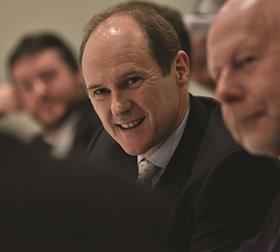
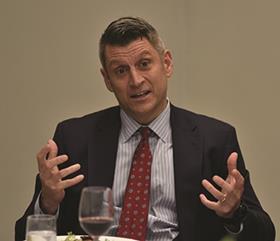

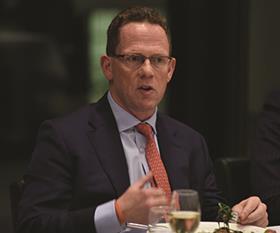









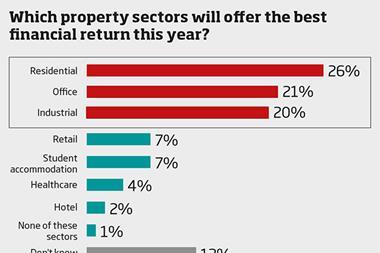
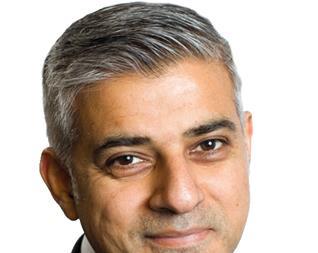
No comments yet